UM-Flint occupational therapy director strengthens Ukrainian rehabilitation education
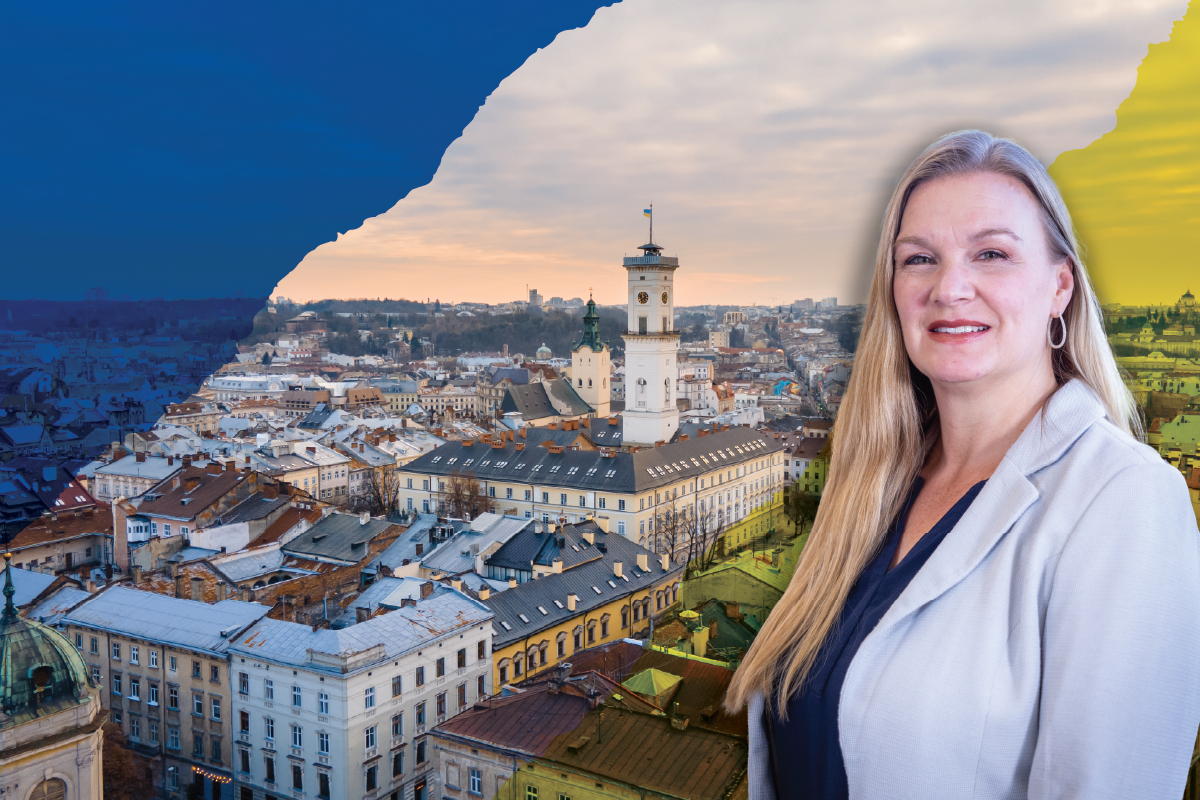
The devastation of war extends far beyond broken buildings. It is written onto the bodies and lives of survivors coping with debilitating injuries. And while rubble can be cleared for new construction, those living in the wake of conflict get only one body in which to live and thus need highly specialized practitioners to help them recover and reclaim their future. A University of Michigan-Flint faculty member is working to ensure those living amidst the Russia-Ukraine War have access to these specialized health care providers. Julie Jacob, director of the Occupational Therapy Department at UM-Flint's College of Health Sciences, recently completed a two-week trip to Lviv, Ukraine, where she worked with local occupational therapy faculty and clinicians to support the country's growing need for rehabilitation services.
Jacob's visit was part of a larger effort organized by Momentum Wheels for Humanity and funded by the United States Agency for International Development. The project was developed in partnership with the Ukrainian Society of Ergotherapists and involved collaboration with the World Federation of Occupational Therapists. Its main goal is to strengthen occupational therapy education and clinical training in Ukraine, particularly amid the pressures of the ongoing war.
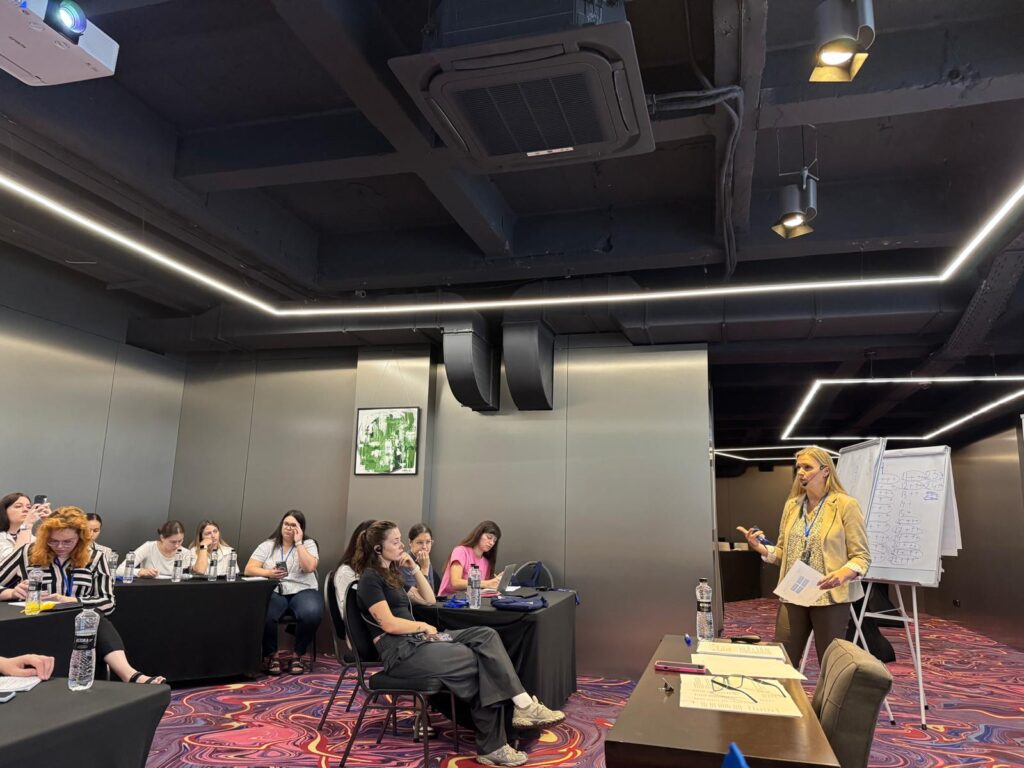
"Most of their rehabilitation professionals were originally trained as physiotherapists, and only since 2016 have physical therapy and occupational therapy been separated into distinct graduate programs," Jacob said. "That means there are still gaps in OT-specific education and practical training, especially as the country faces new and complex rehabilitation needs as a result of the war."
Jacob and an international team, including Samantha Shann, president of the WFOT, worked with OT faculty from five Ukrainian universities and a range of clinicians currently practicing in the region. Together, they addressed topics such as assessment strategies in higher education, reflective practice, clinical reasoning, fieldwork administration and supervisor education. Jacob introduced clinical evaluation tools and resources modeled after U.S. standards while advising on adaptation to Ukraine's context.
A significant portion of the training focused on building clinical education capacity among faculty and supervisors, many of whom also work as practicing clinicians. The seminars and workshops included interactive elements designed to encourage participants to apply new tools and methods to their local settings. "We spent a lot of time discussing how they could implement structured fieldwork evaluations and improve supervision for students, since few formal tools had previously existed," Jacob said.
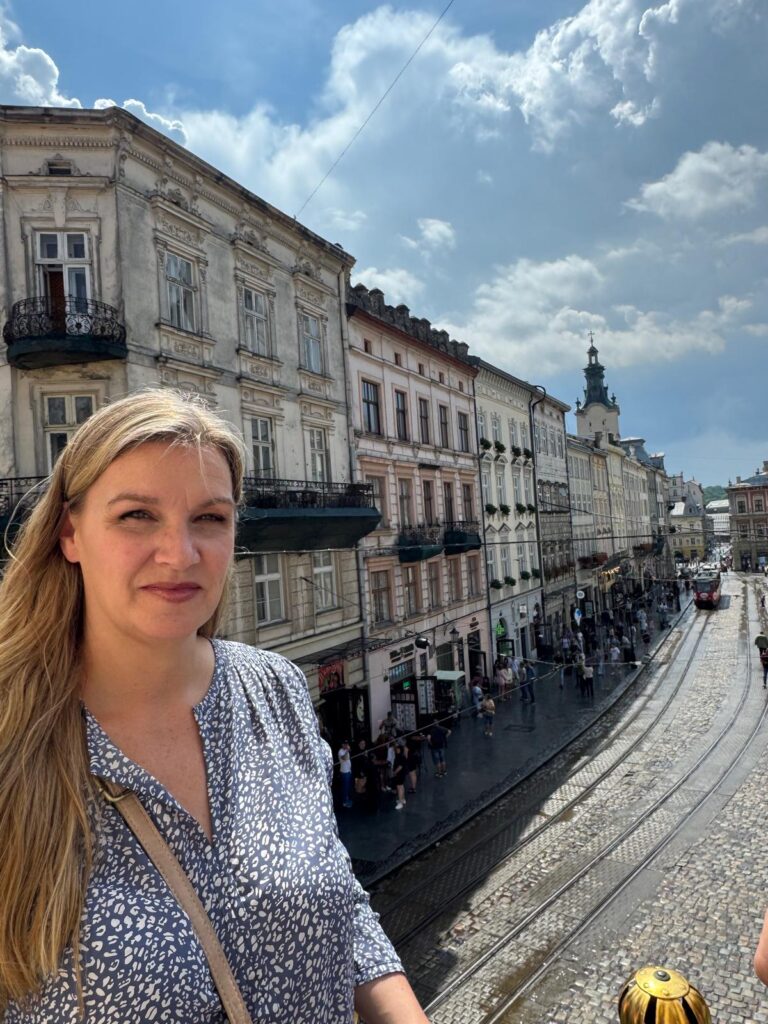
Participants also discussed systemic challenges. Ukraine's rehabilitation services are currently organized largely around a medical model. "There is little access to occupational therapy in community-based health settings, schools or mental health units," Jacob said. "Advocating for the expansion of OT to new settings was a critical part of our work."
The perceived lack of public awareness and professional identity for occupational therapy in Ukraine was another focus of the training sessions. "It's similar to what we still see here in the United States in some ways; many people aren't familiar with what OT does. In Ukraine, that unfamiliarity is even more prevalent," said Jacob. Part of Jacobs' efforts included offering advocacy strategies and discussing ways to raise the profession's profile with both the public and other health professionals.
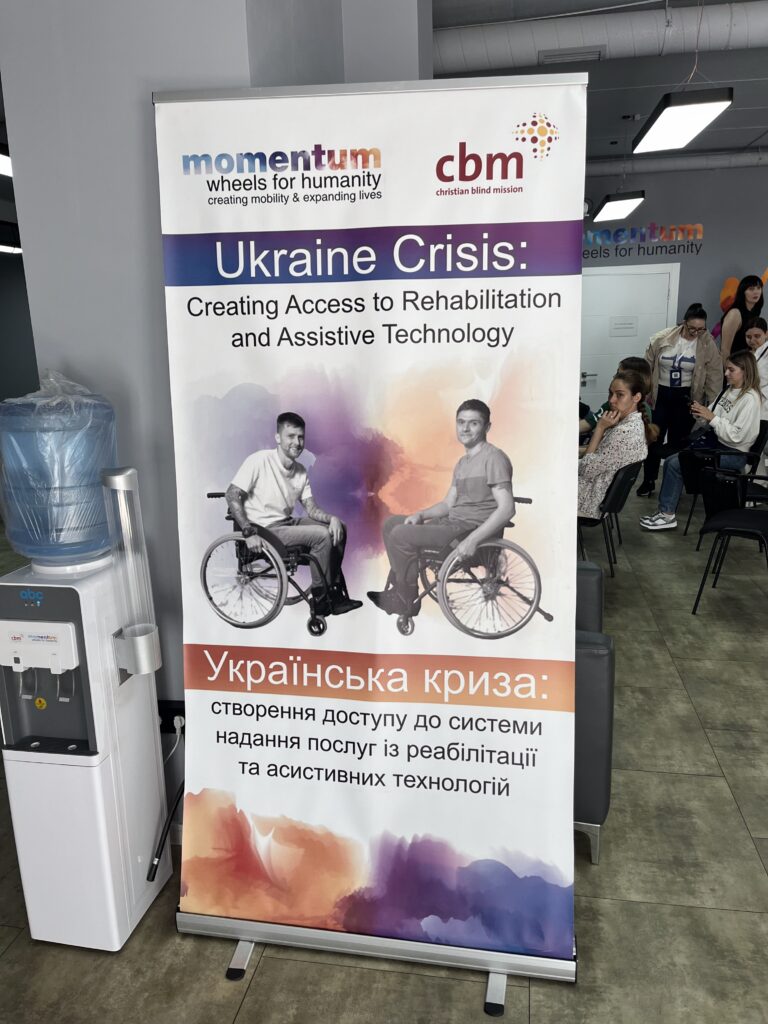
Jacob and other program leaders visited new rehabilitation centers, including the Unbroken Center and Superhuman Center in Lviv. These centers have received support from organizations such as USAID and are helping address the high rates of traumatic injury seen since the war began. In addition, the team toured an assistive technology hub established by Momentum Wheels for Humanity that provides temporary equipment, such as wheelchairs, to Ukrainians awaiting formal disability status and government support.
UM-Flint is exploring future collaborations with Ukrainian universities to continue mentorship and support. Pending funding, the project is expected to continue for four years.
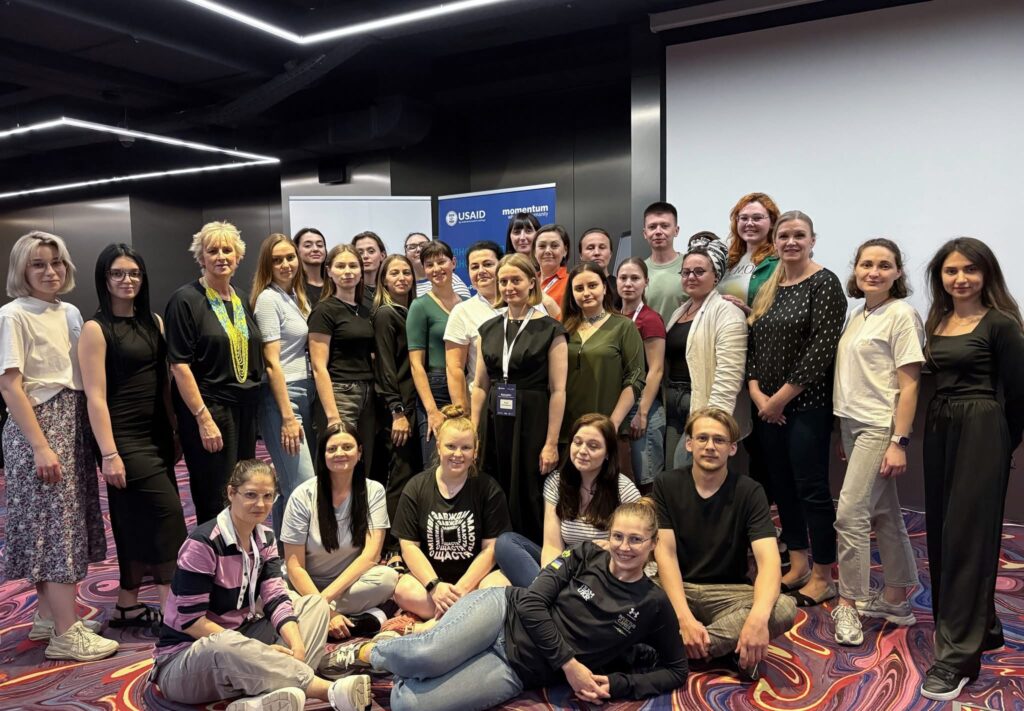
Jacob said she was impressed by the dedication and resilience of Ukrainian educators and clinicians, who continue to invest in their profession and communities despite significant challenges."These faculty and clinicians are deeply motivated to transform rehabilitation education and services in Ukraine. Continued collaboration will be essential in supporting their progress. There is a long road ahead, but I am optimistic about the future of OT in Ukraine," she said.
Helen Garbarino
Helen Garbarino is the communications specialist for the College of Health Sciences. Her role encompasses a broad scope of tasks including communications, outreach, marketing efforts, alumni engagement, graphic design, and much more. She can be reached at helund@umich.edu.
